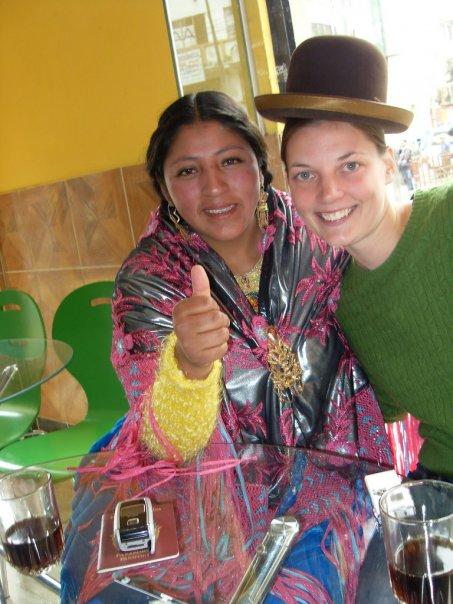Welcome Professor Haynes!
Posted in Faculty | Tagged Faculty, Haynes, Welcome

The Department of Anthropology is excited that Professor Nell Haynes will be joining us for the 2018-2019 Academic Year!
Nell Haynes earned her Ph.D. in Anthropology at American University in 2013 with a concentration in Race, Gender, and Social Justice. She also holds a Bachelor of Science degree from Northwestern University in Anthropology and Theater. Her research and teaching focus on gender and indigeneity in Latin America. In particular, she is interested in the ways that notions of who counts as “authentically indigenous” become expressed through and troubled by popular culture and media. After publishing Social Media in Northern Chile in 2016, she is currently working on her second book tentatively titled Chola in a Choke Hold: Remaking Indigeneity through Bolivian Lucha Libre. The book explores how Lucha Libre wrestling spectacles, featuring women performing as Andean Chola characters, reflect and contribute to current debates over the nature of indigeneity in Bolivia.
Professor Hayne’s Fall 2018 Courses
ANTH 209 Anthropology of Social Media – Social media platforms have quickly transformed communication, relationships, identities, education and at times, power relations. These platforms have also become a popular topic for discussion and research, yet most claims made about social media are very general. This course takes an anthropological approach to social media in order to speak about the ways social media use is embedded in and reflective of specific cultural contexts. The course concentrates on the content of social media rather than platforms and also explores social media as a research method for understanding how people’s lives converge in both online and offline spaces. This course explores the incredible variation in social media that emerges on different continents, among people of different classes and religious backgrounds, for people with different gender identities and sexual practices, and among people who are differently embedded in the global system.
ANTH 245 Cultures and Sexualities – This course combines anthropological concepts with recent developments in gender and queer theory to understand cultural diversity in concepts of gender, sexuality, and sex across continents. The class focuses on cultural norms, institutions, and historical processes that have influenced possibilities for gender and sexuality in different places and times. Readings approach gender and sexuality from a number of theoretical standpoints including identity, desire, practice, scientific and medical subjectivity, institutional categories, and political stance. We will consider gender and sexuality in conjunction with concepts including social construction, performativity, intersectionality, governmentality, globalization, and hegemony. Readings incorporate ethnographic examples from several continents related to masculinity, femininity, marriage, reproduction, hetero- and homo-normativity, non-binary gender categories, and queerness. These case studies will provide students with a basis for understanding how theory relates to lived experience.
ANTH 253 Real Indians: Indigeneity and the Politics of Authenticity – Indigenous peoples face pressures to conform to a variety of social and institutional expectations, ranging from state recognition to media representations. They must often balance the necessity of embodying external stereotypes and racial expectations while forging individual and collective identities that go beyond these expectations. This seminar engages with recent scholarship in Native American and Indigenous Studies that addresses indigeneity as a political status, a supposed biological category, a social experience, and a point of departure for political involvement and activism. Our readings will also engage feminist and queer perspectives on the problem of authenticity and we will devote attention to the appropriation of Indigenous culture by non-Indigenous people. Geographic focus includes North and South America, Oceania, and some examples from Europe and Asia. Moreover, we will discuss indigeneity as a source of global affinity among colonized peoples and as a human rights framework within the United Nations.



